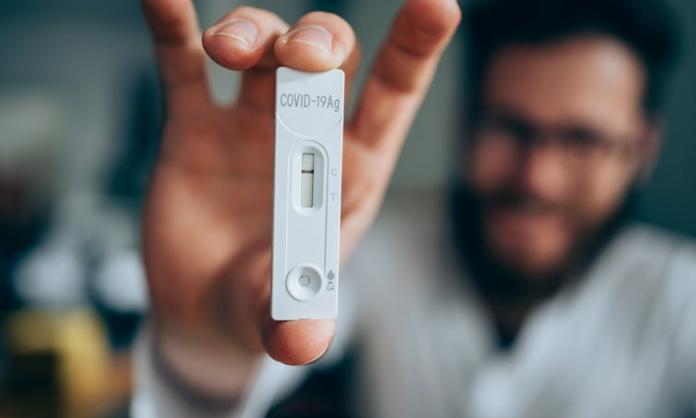Having allowed COVID to spread out of control, and with testing facilities overwhelmed, you might have thought that making rapid antigen testing free is the least the authorities could do.
But the government is against it. Scott Morrison explained that this “means that the private market, whether it’s in the big warehouse pharmacies or the other pharmacies or the supermarkets, they can now go and stock their shelves with confidence that they won’t be undercut by the government”.
To put it another way: free rapid tests would mean less money for Morrison’s friends in business. The health crisis is a great opportunity for Woolworths, Chemist Warehouse, Dick Smith and Harvey Norman to boost their profits by selling health products at the highest price they can get away with.
In early January, reports of extortionate prices flooded the internet. The cost of a single test increased from $10 to as much as $50 a unit. Those lucky enough to spot one on the shelves found themselves either ripped off or excluded. Price gouging retailers have since been somewhat restrained—allowed to sell at no more than 20 percent above the supply price.
According to Health Minister Greg Hunt, providing RATs for free would go against “common sense”. This common sense may be lost on the tens of thousands lining up for tests every day, or the people sitting at home or going to work anxious about whether they have COVID—let alone the millions living below the poverty line.
But there is some truth to Hunt’s “common sense”. Profiteering during a pandemic may seem cruel and inhumane to most of us. But it is quite sensible from the point of view of the capitalists, on whose behalf Morrison and Hunt govern.
Capitalism is a system based on the production of commodities, things produced only to be sold. Almost every object within your reach is a commodity: your phone, your shoes, your chair. All were produced not primarily to satisfy social needs, but to be bought and sold on the market to generate profits for a private business.
For the free-market fundamentalists in the Liberal government, this is the ideal way to organise the economy and society. Supply and demand purportedly form a neat harmony. The companies that step in to meet a demand (such as testing kits during a pandemic) are rewarded with a profit.
In reality, the profit motive sidelines human need and rewards predatory behaviour. The current pandemic has proven this repeatedly. Parasitic retailers have profiteered not only from tests, but from steeply priced masks and hand sanitiser. The pharmaceutical giants’ mission to make record profits has stunted the global distribution of vaccines—only 9 percent of people in Africa have received two doses.
Aside from the pandemic, the commodification of all things causes human suffering on an unbearable scale. Take food. We now produce enough food to keep the world’s human population fed (with plenty left over). We have the logistical capacity to get that food to all who need it—think of the expansive distribution networks of a single company like McDonald’s, selling millions of Big Macs across the planet every day. And yet almost a billion people finish each day pained and tired, if not dying, from hunger.
The solution is in plain view: feed the hungry. But this would topple the logic of the capitalist market. If we establish the precedent that humans can eat for free, why would anyone pay for food? To borrow Scott Morrison’s phrase, feeding the hungry would “undercut” business. Instead, excess food is dumped and left to rot.
There are endless examples of the disaster that is for-profit production. Millions are homeless in the world’s richest countries despite empty dwellings outnumbering the homeless. Pharmaceutical companies prioritise products that will make money, not those which will save lives—they prefer more expensive long-term treatments to preventions or cures. Nature’s fresh water is captured, placed in plastic bottles bearing corporate logos, withheld from the poor, and sold to the benefit of the ultra-rich. This is the calculated madness, the “common sense”, at the heart of the system.
There is nothing natural about capitalism and its mass commodity production. For most of human history we worked primarily to fulfil our needs, rather than to sell things for a profit. Modern society’s vast productive resources should be organised to benefit humanity and our environment. Food should be made for people to eat, houses made for people to live in, clothes made for people to wear, rather than to generate immense riches for a tiny minority.
And yes, medicines should be distributed and medical testing should be carried out freely for the common good. It’s common sense.








